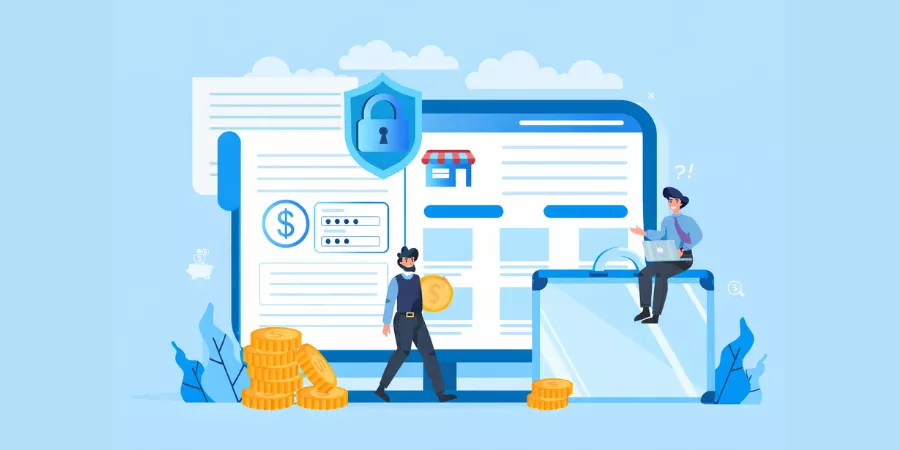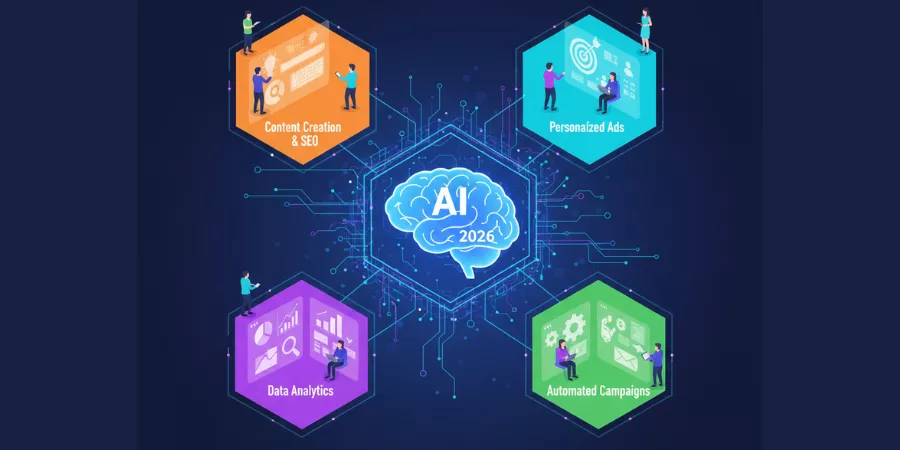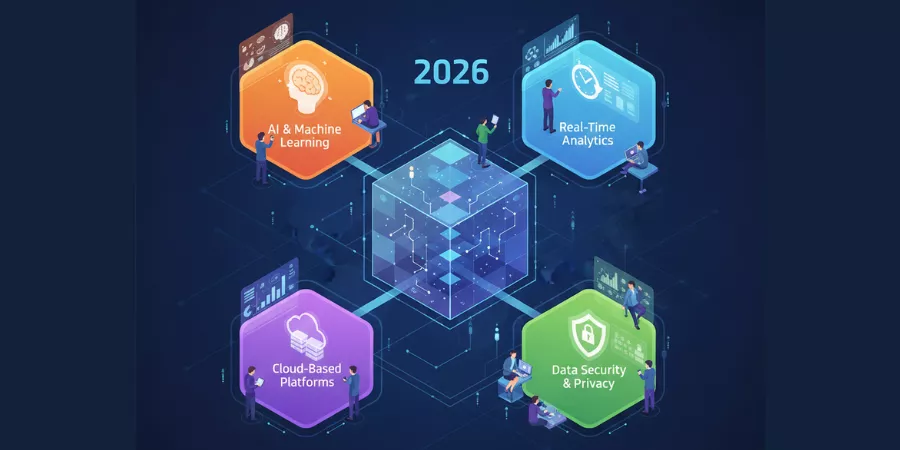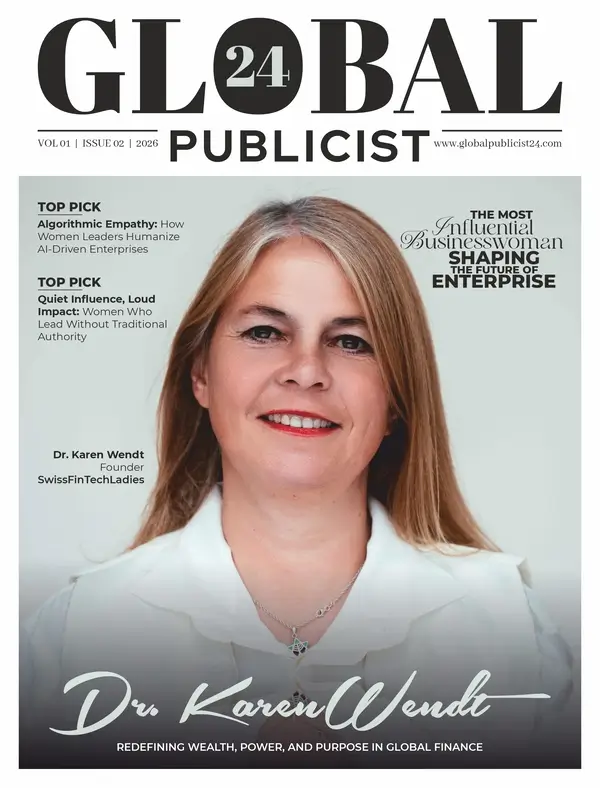People need to be responsible for teams to do well. Workers may do a better job when they know who is in charge of what, when items are due, and how to keep track of progress. But teams lose time looking for information they need when tasks aren’t defined and work isn’t organized. Today’s workplaces need systems that make it obvious who owns what, show schedules, and make sure people do what they say they will do. Today’s project management tools hold people accountable for their work, which helps turn goals into real progress.
Lark Base: creating structured accountability systems

Lark Base
Lark Base helps teams remain on schedule by putting project information, customer pipelines, and deliverables into organized records. Dashboards make it easy for managers to keep an eye on progress and for workers to know who is in charge of what. Kanban boards and timelines are two examples of displays that make ownership evident. By connecting client needs with project activity, Base supports CRM app workflows that align internal responsibilities with external commitments.
Lark OKR: aligning accountability with outcomes

Lark OKR
To ensure accountability, it’s important that teams understand how their everyday tasks support the overall goals. Lark OKR (Objectives and Key Results) connects what people do with the results the company wants. Employees see how their work matters, and managers can follow progress by looking at what’s been achieved. This approach lowers the chance of people doing work that doesn’t matter and helps make sure accountability leads to real results. When OKRs are clear, everyone can see how their jobs fit into the bigger plan.
Lark Docs: documenting accountability in real time

Lark Docs
Accountability can suffer if decisions, processes, or agreements aren’t well-documented. Lark Docs tackles this by making documents living records where commitments are visible and traceable. Teams can work together on guidelines, project plans, or policies at the same time, making sure responsibilities are clearly stated and updated as projects change. Comments and version history show who added what and when, and attached Lark Sheets offer real-time data to support accountability. By keeping knowledge close to the actions, Docs makes sure that no responsibility is lost in old files or forgotten after talks.
Lark Minutes: turning discussions into commitments

Lark Minutes
Meetings often serve as a place for assigning responsibilities, yet accountability can be compromised if these assignments aren’t properly noted. Lark Minutes addresses this issue by automatically recording, transcribing, and summarizing discussions. Key action items are extracted and linked to tasks or Lark Base records, so employees gain clarity on what to do after meetings. Searchable archives prevent later confusion, and summaries let leaders quickly review outcomes. Rather than depending on memory or follow-up emails, Minutes changes conversations into trackable commitments, making accountability clear to everyone.
Lark Tasks: ensuring responsibilities don’t slip

Lark Task
Tasks are key to getting things done, but they can easily be missedwithout a good system. Lark Tasks adds structure and responsibility by assigning owners, setting due dates, and tracking progress as it happens. People can see what’s most important in one spot, and managers can check task lists across teams to find possible issues. Reminders help people remember deadlines, and linked Docs or Base records make sure everyone has the information they need. By making duties clear and visible, Lark Tasks lowers the risk of forgotten promises and makes sure nothing is missed.
Lark Approval: creating accountability in decision-making
 Lark Approval
Lark Approval
Decisions can lack responsibility when approvals are late or lost in email. Lark Approval makes the process standard by capturing requests in set forms and sending them right away to the correct people. Notifications show approvals in Messenger, which helps decision-makers respond fast. Every approval is noted for openness, so it’s always clear who made what decision and when. Approvals become set steps in the responsibility process instead of being unclear or hidden, which helps teams move ahead with certainty.
Lark Sheets: embedding accountability into data

Lark Sheet
How data is handled is very important but often missed when it comes to responsibility. When numbers are changed by hand, mistakes happen, and no one knows who is in charge. Lark Sheets fixes this by offering spreadsheets that update live and allow teamwork, with responsibility built in. Permissions make it clear who owns what data, and conditional formatting points out strange things before they cause bigger issues. Automations keep numbers up to date, which lowers errors. By adding responsibility to how data is handled, Sheets makes sure teams can trust their numbers and the people who work with them.
Lark Messenger: transparent communication that supports accountability

Lark Messenger
Communication is key to accountability, yet many organizations find updates spread thinly across countless emails and chats. Lark Messenger helps keep accountability clear by putting collaboration right where employees are. Threaded chats keep talks focused on specific projects or assignments, while pinned messages make sure promises are easy to see. Buzz alerts help get attention on urgent matters without overburdening employees. Crucially, Messenger links talks to Docs, Base, or Tasks, so updates are connected to work. Communication doesn’t just talk about accountability, it makes it happen.
Conclusion
Accountability is not accidental, it’s part of the systems teams use to plan, communicate, and do their jobs. Digital tools like Lark make responsibility visible, commitments easy to track, and deadlines consistently met. Base structures accountability, OKR connects work with results, Docs records responsibilities in real time, Minutes turns talks into action items, Tasks ensures things get done, Approval keeps decisions open, Sheets keeps data sound, and Messenger supports clear communication.
Together, these tools change accountability from something leaders pursue to something organizations practice daily. By building commitments into an automated workflow, organizations remove any doubt about who is responsible for what and when. This creates a workplace where employees get their role, leaders have faith in progress, and teams get results regularly. In the future, accountability means not just doing the job—it means making responsibility clear, connected, and hard to miss.















